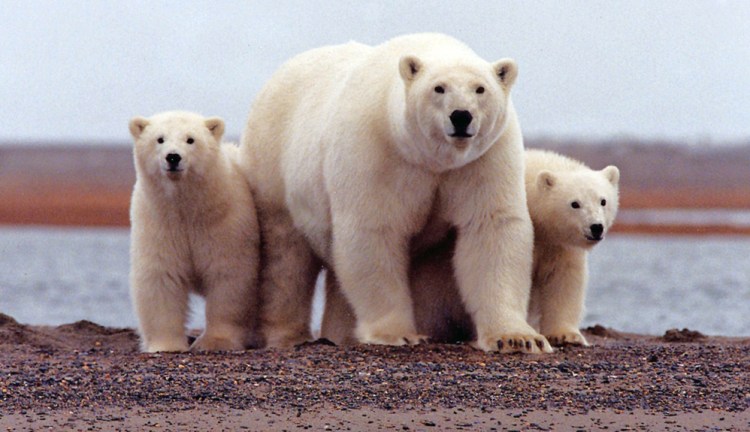During her nearly four years as President Obama’s secretary of the interior, Sally Jewell said, oil companies did not pressure her about opening up the Arctic National Wildlife Refuge for drilling.
Politicians, however, were a different story.
Jewell says she heard about the issue repeatedly from Alaska’s governor and members of Congress, who were worried about a state budget crisis amid plummeting oil prices and declining local production. The state of Alaska, which lacks a sales tax and an income tax, relies on oil revenues to pay for the vast majority of its state budget, as well as fund popular yearly dividend checks to residents.
Now, under the tax reform bill just approved by Congress, Alaska is set to get half of the revenue from opening up a coastal portion of the 19 million-acre wilderness area to drilling.
CONTROVERSIAL POLICY EVADES SCRUTINY
Because the plan to allow drilling on the refuge’s coastal plain was buried in the Republican tax bill, Republicans in Congress were able to pass the controversial environmental policy with a simple-majority vote and minimal discussion. Efforts by Sen. Maria Cantwell, D-Wash., to strip the Arctic refuge from the tax plan failed.
“This is just sliding through on a tax bill, and it’s not getting the attention it deserves,” Jewell said Monday. ” … It’s frustrating.”
Drilling in the Arctic refuge is an issue that deserved scrutiny independent of the contentious tax plan. Effectively, Republican leaders just used one of the nation’s last undisturbed wildlife habitats as a bargaining chip to push through a fiscally dubious tax package.
Sen. Lisa Murkowski, R-Alaska, was one of the members of Congress who Jewell said repeatedly approached her about opening up the Arctic National Wildlife Refuge for oil and gas exploration. Tying the tax bill to one of Murkowski’s longtime policy goals – opening the Arctic refuge to oil drilling – was one way to secure her support.
It’s regrettable that Congress would barter away pristine natural resources in this manner. The coastal plain of the Arctic refuge remains a crucial calving ground for the porcupine caribou herd, according to the U.S. Fish and Wildlife Service. It also is important habitat for vulnerable polar bears, as well as to millions of migratory birds.
NO PRESSING NEED TO PROBE FOR MORE OIL
With U.S. crude oil production up 80 percent from 2007, there is no pressing need to probe for more oil in a protected wildlife refuge. Next year, U.S. domestic oil production is forecast to reach an all-time high, driven by the rise of less costly shale drilling in Texas.
While cutting the corporate tax rate from 35 percent to 21 percent is expected to cost about $1.5 trillion over 10 years, selling oil and gas leases in the Arctic National Wildlife Refuge’s coastal plain will do little to offset that sticker shock. The move is projected to generate about $1 billion for the federal government over a decade, a comparatively paltry sum. A 2008 report from the U.S. Energy Information Administration also cast doubt on the size and quality of the oil resources beneath the refuge’s surface.
Following Wednesday’s vote, environmentalists vowed to shift the fight from the halls of Congress to the courts.
Preserving these pristine lands is in the best interest of the nation as a whole. Americans should be upset that Congress allowed them to be sold off in exchange for a single tax vote.
Send questions/comments to the editors.



Success. Please wait for the page to reload. If the page does not reload within 5 seconds, please refresh the page.
Enter your email and password to access comments.
Hi, to comment on stories you must . This profile is in addition to your subscription and website login.
Already have a commenting profile? .
Invalid username/password.
Please check your email to confirm and complete your registration.
Only subscribers are eligible to post comments. Please subscribe or login first for digital access. Here’s why.
Use the form below to reset your password. When you've submitted your account email, we will send an email with a reset code.